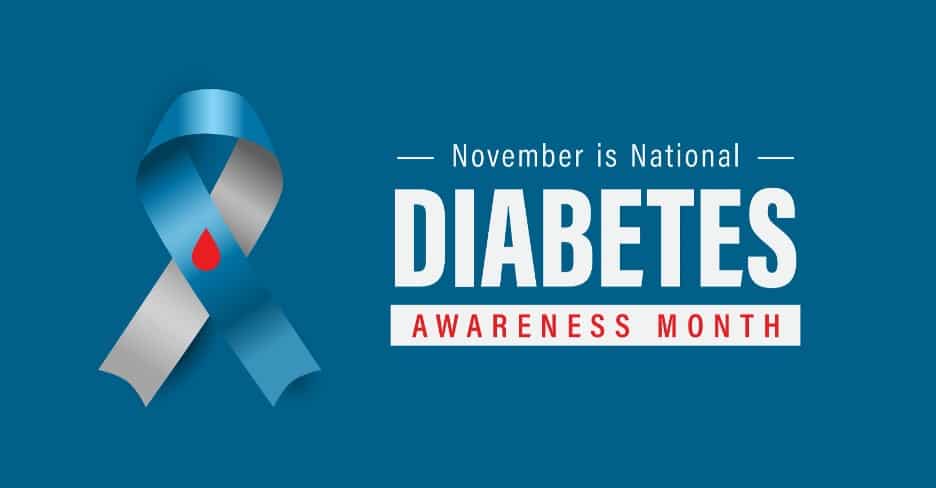Diabetes Awareness Month

Diabetes Awareness Month takes place every November and serves as an important time to shine a light on diabetes, the health challenges it brings, and how individuals and communities can provide support to those affected. Organised by diabetes charities, healthcare professionals, and communities worldwide, the month is packed with educational initiatives, fundraising efforts, and calls to action. This article explores the importance of Diabetes Awareness Month, its impact in the UK, and the many ways you can participate in raising awareness and promoting support.
What is Diabetes?
Diabetes is a chronic health condition where the body is unable to regulate blood glucose (sugar) levels effectively. The two most common types are:
- Type 1 Diabetes: An autoimmune condition where the body’s immune system attacks insulin-producing cells, often developing in childhood or early adulthood.
- Type 2 Diabetes: Often linked to lifestyle and genetic factors, Type 2 is the most common type. It occurs when the body doesn’t produce enough insulin or doesn’t use insulin effectively, making it preventable and manageable with lifestyle adjustments and medical treatment.
In the UK, an estimated 4.9 million people live with diabetes, with around 13.6 million at increased risk of developing Type 2 diabetes. This figure underscores the importance of raising awareness of diabetes and its impact, especially since it can lead to complications affecting the heart, kidneys, nerves, and eyes.
Goals of Diabetes Awareness Month
Diabetes Awareness Month has four key aims:
- Increasing Public Understanding: Many people don’t fully understand what diabetes entails or the seriousness of the condition. Through education, more individuals can recognise symptoms, understand risk factors, and make lifestyle adjustments to reduce their risk.
- Reducing Stigma: Living with diabetes can come with social and mental health challenges, including stigma. By talking openly, sharing personal stories, and promoting accurate information, the campaign aims to create a supportive environment for those affected.
- Encouraging Early Diagnosis: Early detection can significantly improve the management of diabetes and reduce health complications. Awareness campaigns educate people on symptoms such as fatigue, increased thirst, frequent urination, and blurred vision, encouraging early consultations with healthcare professionals.
- Promoting Research Funding: Fundraising during Diabetes Awareness Month supports research for better treatments and the search for a cure, as well as improvements in patient care and education on effective self-management.
Diabetes in the UK: Key Statistics
- 4.9 million people are living with diabetes in the UK.
- 90% of cases are Type 2 diabetes, largely linked to lifestyle factors like diet, weight, and physical activity.
- £10 billion of NHS spending annually is allocated to diabetes care, a significant portion of the health budget.
- 1 in 15 people is affected by diabetes, either diagnosed or undiagnosed.
Symptoms of Diabetes
Recognising diabetes early on can reduce the risk of complications and make the condition easier to manage. Key symptoms include:
- Unusual thirst
- Frequent urination, particularly at night
- Extreme fatigue
- Unexplained weight loss
- Blurred vision
- Slow healing of cuts and wounds
How to Get Involved in Diabetes Awareness Month
Diabetes Awareness Month provides a great opportunity for people across the UK to get involved and help make a difference.
1. Support Fundraising Events
Diabetes UK and other charities hold events such as sponsored walks, bake sales, and virtual marathons throughout November. These events raise vital funds for research, education, and support services, and they’re a great way to get the community involved.
2. Educate Yourself and Share
Understanding diabetes and its risks can help prevent Type 2 diabetes. Learning and sharing knowledge on healthy diets, exercise, and early diagnosis plays an essential role in prevention. Social media is also a powerful tool to share helpful information, personal stories, and resources.
3. Wear Blue
The blue circle is the international symbol for diabetes awareness. Wearing blue and sharing photos with the hashtag #DiabetesAwarenessMonth can help spread awareness and create a sense of solidarity for those affected by diabetes.
4. Encourage Health Checks
Raising awareness about the importance of regular health checks is crucial. Encouraging others to have their blood sugar levels checked, especially if they’re at risk, can lead to earlier diagnoses and better management.
Supporting People with Diabetes
Living with diabetes brings daily challenges. Families, friends, and communities can play a huge role in offering support by:
- Encouraging a balanced diet: Meal planning and understanding dietary needs can make diabetes management more effective.
- Offering emotional support: Diabetes management can be isolating. Talking, checking in, and encouraging mental health support if needed can make a positive difference.
- Promoting exercise: Staying active helps maintain healthy blood sugar levels. Joining someone for a walk or gym session can be motivating.
Conclusion
Diabetes Awareness Month is a critical opportunity for everyone in the UK to learn, share, and support. With diabetes affecting millions of lives, raising awareness, promoting healthy lifestyle choices, and supporting those impacted can help create a healthier, more understanding society. By understanding the risks and sharing the knowledge, we can make strides in preventing Type 2 diabetes and supporting those living with diabetes year-round.